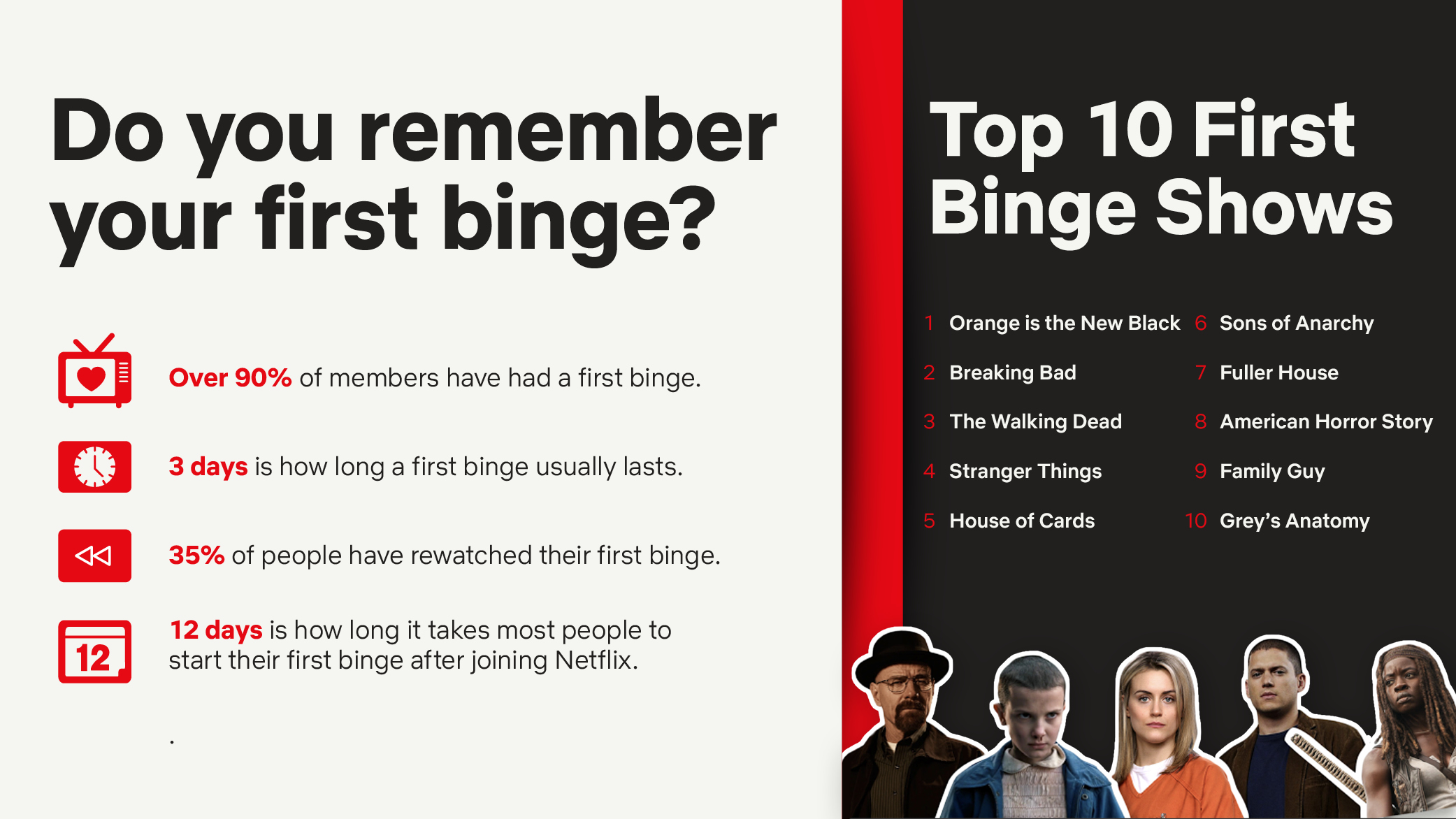Binge-Watching: Changing the Way We Watch
If you're like every other American, it is safe to say you have binged watched a television show at least once in your life. If you are like me it's more like 30 or 40 shows. Since the revelation of streaming platforms binging shows has become the norm. Binge-watching “is the practice of watching multiple episodes of a television program in rapid succession, typically by means of DVDs or digital streaming.” One of the first shows I remember binging was the show Bones. This was before streaming was a huge thing. My sister and I recorded all the episodes and watched them on our DVR.
 |
Since then, sites like Netflix, Hulu, or Disney + have paved the way for how people watch TV. The early 2010s was a primetime weekly released television show era. ABC, now known as FreeForm, was putting out 20+ episodes of Pretty Little Liars and The Fosters. Fox was dropping Glee and New Girl.
Looking back, lots of the shows were filled with filler episodes to make money from commercials and viewers. Youtuber Mike’s Mic did, what I think is, an amazing job at giving a total rundown of Pretty Little Liars. He left out a lot of episodes proving that most of the scenes were nonessential to progressing the plotline. His videos are a three-part series and explain all the plot points and plot holes. His analysis made me realize that most weekly released shows were like that. New Girl is another great example of having a bunch of filler episodes.
Today, it is more common for streaming sites to drop shows in whole as a full season. Newer shows are also more likely to have fewer episodes, which I think is the result of writers not having to fill up space to fill contracts. American Horror Story is one of the first shows I remember seeing that had less than 15 episodes. At the time, I remember the show being called a ‘mini-series.’ That was in 2011, today 8-12 episodes is a normal length season.
Studies have been done on binge-watching to figure out why it has become so popular so quickly. One research project, in particular, found that the reason people binge TV shows is that it gives us instant gratification and “hedonistic needs.” In more simple terms it helps consumers relax. They also found that people watched all of a show to connect with other people. The idea that the more they knew about a show, the more they could talk about it with others was what motivated them to sit down and watch everything. This is something I can relate to. Most of the shows that I’ve watched, I’ve watched because someone else told me to.
 |
| picture contains link |
Another study also found that the most common reason for binge-watching was concerning FOMO (fear of missing out). One, to avoid spoilers, and two, to stay up to date with pop culture references. Squid Games was one of those shows that everyone watched across the world.
I think when you look at binge-watching as a whole, the bigger picture reveals that it has changed how not only we watch television, but how writers and producers make TV shows. Writers realized that making shorter seasons would increase watchability and decrease the cost of production.



No comments:
Post a Comment